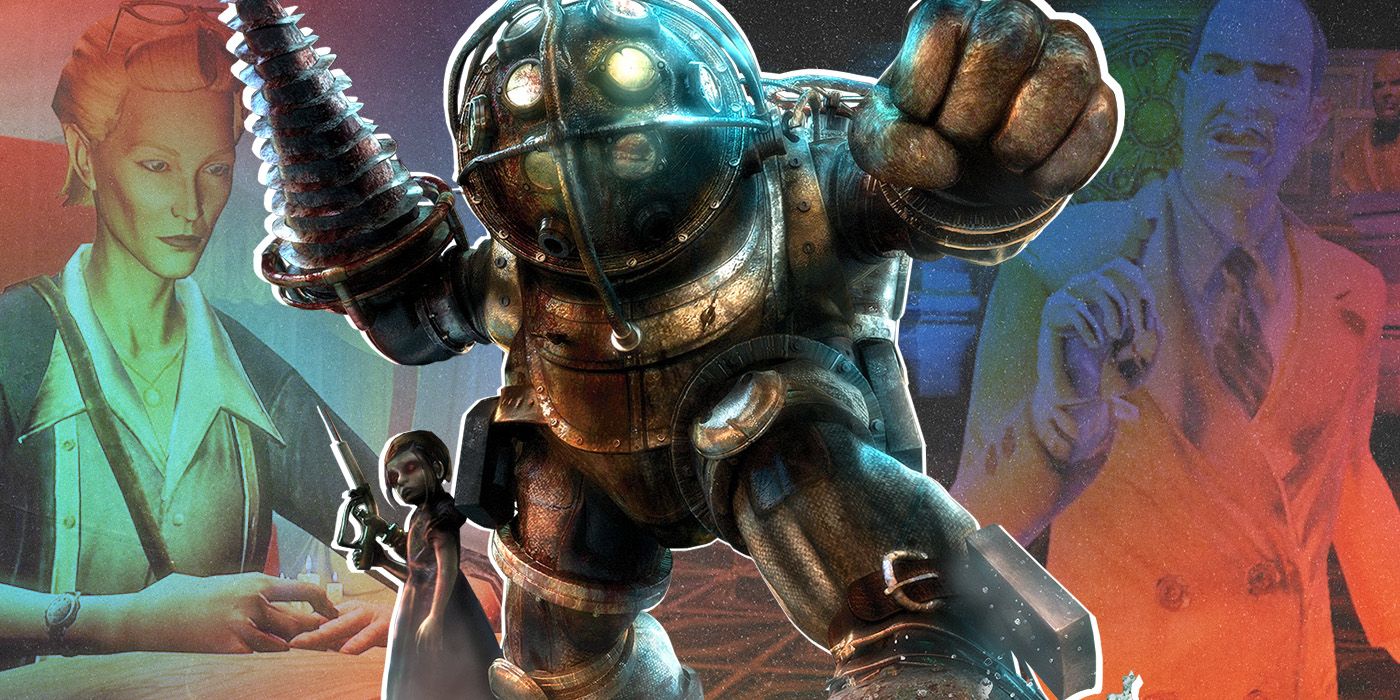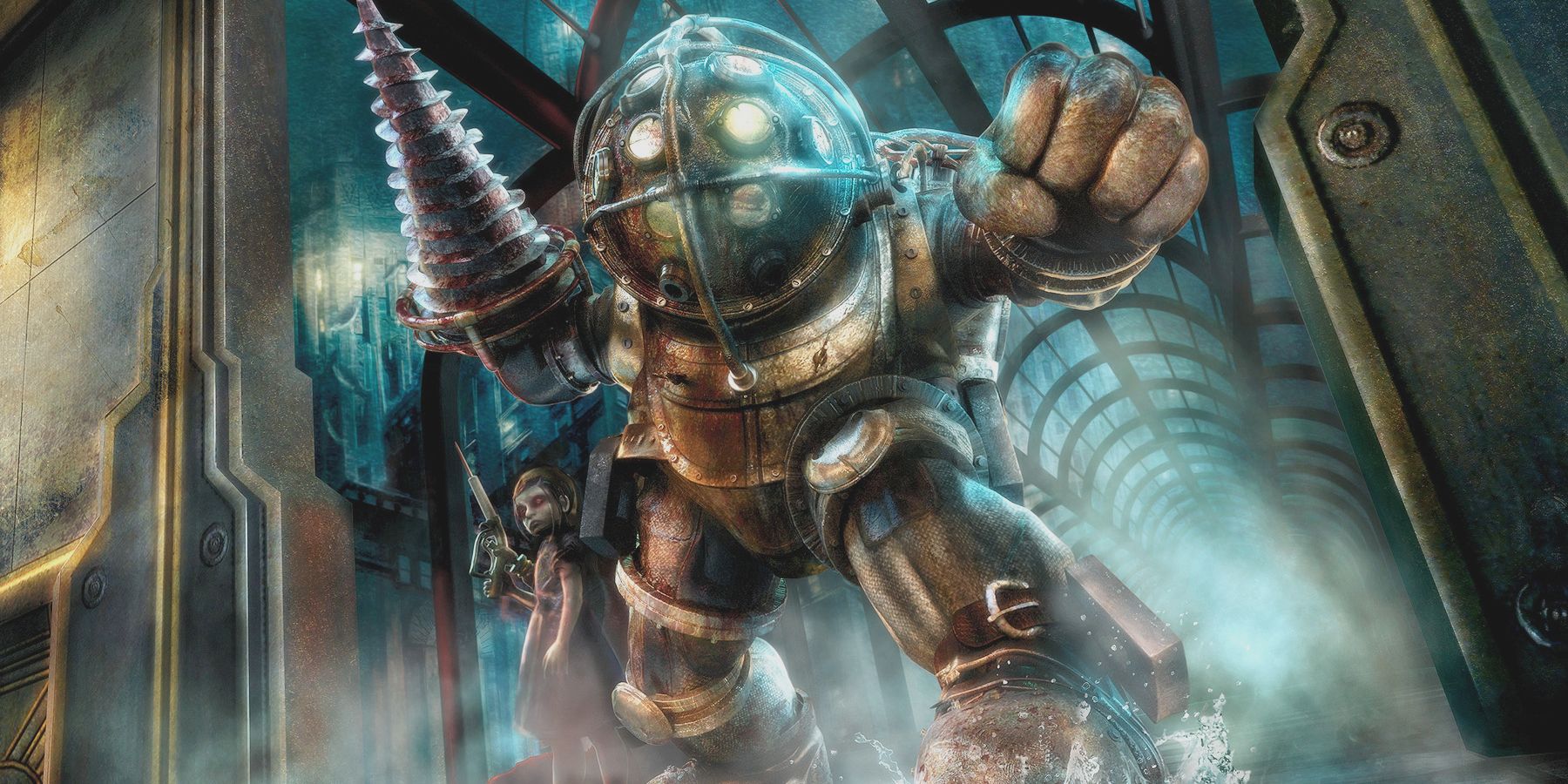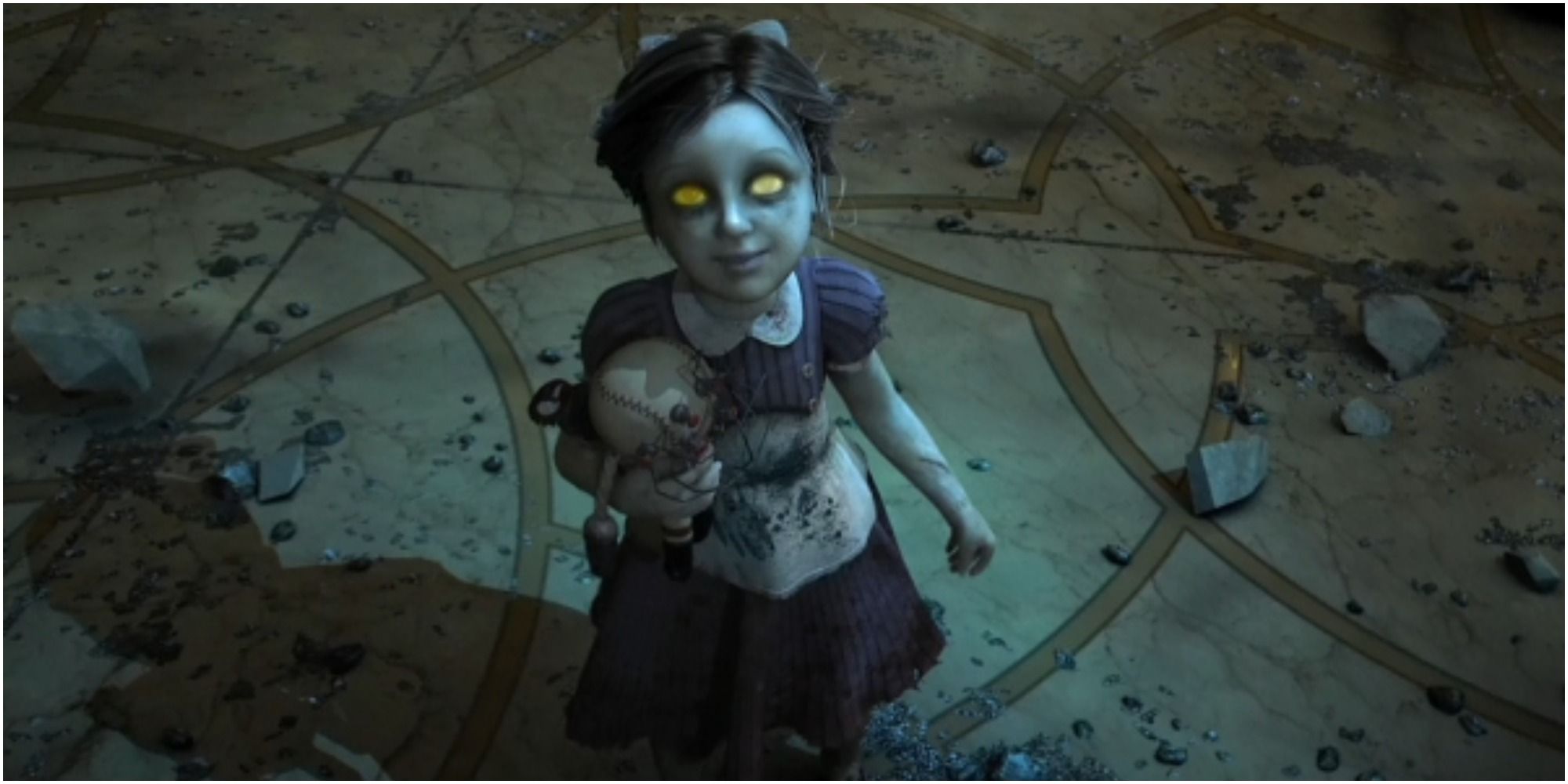Summary
- Bioshock 2 is often overlooked, but it carries a strong message about the flaws of utilitarianism, contrasting with the first game's critique of objectivism.
- Understanding the extremes of both philosophies is crucial to appreciating the full narrative of Bioshock 1 & 2, showing how utopian concepts can crumble in reality.
- Dr. Sophia Lamb embodies the weaknesses of utilitarianism through her willingness to sacrifice individuals for the collective good, which highlights the dangers of extreme devotion to a single ideology.
Bioshock is one of those game franchises that players point to when asked about games that have deeper messages and meanings. The first entry in the series was famously a meditation on the philosophy of Objectivism, popularized by Ayn Rand in the '40s and '50s. The third game is an amazingly bleak look at the idea of the mythologizing of American history and its cultish effect on those who are brainwashed by what can be regarded as propagandistic reconceptualization. Bioshock 2, on the other hand, tends to often be left out of the conversation rather unfairly.
Bioshock 2 has the unfortunate problem of being a sequel game that is sandwiched between two games that were not only hotly anticipated, but were genuinely doing something incredibly interesting that felt different for audiences. But, it also has an incredibly strong and interesting message buried within its twisting, leaking hallways. It actually stands as a take-down of the diametric opposite philosophy of Objectivism, which is Utilitarianism, and an understanding of this specific school of thought can help gamers to better appreciate the scope of what Bioshock 2 was hoping to achieve.
Bioshock 1 and 2 Embody Polar Opposite Philosophies And The Downfalls Of Both
The thing about philosophy or governmental structures is that they always look good on paper. The written outline of ideals and laws can look benign when confined to the world of pen and paper. It is the injection of a human element into these concepts that has the unfortunate side effect of derailing the lofty goals contained therein. Understanding the ways in which Bioshock 1 & 2 actually work together to create a philosophical narrative of how extremes on either side of a spectrum can be inherently problematic is important for gamers who have an interest in taking in the full breadth of the story presented in both games. They actually work quite well as a way to demonstrate the ease with which these utopian concepts can fall to the pain of reality.
Bioshock 2 specifically works in opposition to Bioshock in the philosophy at its core which is collectivist utilitarianism. As opposed to the first game's complete take-down of the hyper-individualism of objectivism, Bioshock 2 focuses on the ways in which utilitarianism can be warped. At its very base core, utilitarianism is a philosophy that focuses on the usefulness and utility of any action and how it impacts the community. It is an offshoot of Consequentialism which believes that the only arbiter of right and wrong is the consequence of any action, but utilitarianism weighs the interests of all sentient beings equally as a collective. For example: a consequentialist will always say that murder is wrong no matter what because it results in the death of a person, but a utilitarian could argue that the murder of a mass murderer is a moral act because it is better for the greater good. The goal of utilitarianism is the betterment of the collective, creating a society around efficiency and maximizing the outcomes for all sentient beings as equitably as possible.
This stands in opposition to objectivism which holds the individual above the collective and whose happiness is the only moral purpose in their life. There is an exaltation of selfishness in objectivism, an emphasis placed on free will as a person without free will is utterly without morals or worth. As Andrew Ryan says "a man chooses, a slave obeys." An objectivist, in this regard, could argue that murder is correct if the person murdered was impacting the life of the individual who murdered them negatively. While these are extreme examples, it's important to acknowledge where the extremes of any philosophy can take an individual. The goal of objectivism is the freedom of the individual, separating them from fate entirely and making the most moral action a person can take to be the glorification of the self.
Both Bioshock games show the consequences of extreme attachment to either belief. Rapture itself is built as an objectivist paradise, supposedly, and the conflict within comes down to two men who are practically caricatures of the men portrayed in Atlas Shrugged looking to grab for each other's power while not caring who gets hurt or used along the way. All the chaos in Rapture happens because of the uncontrolled egoism of the men at the core of its conflict, and the people who suffer the most are the ones who are the most easily exploited. The second game reveals what happens when such men create power vacuums through the implosion of their own selfishness, and how those people who are exploited are doomed to never be in positions of power when the world around them contains nothing but extremes. Standing in complete contrast to Andrew Ryan is Dr. Sophia Lamb.
Sophia Lamb Encapsulates The Weaknesses Therein
Any action can be justified as long as it ultimately benefits the greatest number of people. At its core, this idea seems relatively benign—utopian, in fact. It is the reality of a person who is willing to do anything at any cost that reveals the weaknesses of basing an entire governmental structure around such a hard-line idea. Bioshock 2 takes place in the power vacuum left behind by the objectivist Andrew Ryan and this gives plenty of room for someone like Dr. Sophia Lamb to come into power. At first, her goals seem altruistic in the time when Ryan is still in power. She wanted to enlighten the citizens about the idea of the common good, she shared her wealth by losing poker games on purpose, and she was a threat to the structure that Ryan had built. She ends up jailed through shady means, along with many of her followers, and forgotten by the upper crust of Rapture. But her philosophy spread to become a religion among the poor and vulnerable who still lived there.
After Ryan and Fontaine's deaths, Sophia is free to move about Rapture freely and is inspired by the work done on the protagonist of the first game. She begins using her intellect to create an absolute, altruistic good. Of course, this required a ton of human experimentation and the use of ADAM, the substance that had led to the Little Sisters and Big Daddies. This also led to more little girls being kidnapped from the surface to make more Little Sisters to acquire more ADAM, creating a cycle of pain and suffering for others in the name of the greater good. Sophia is willing to do anything in service of the goal of betterment, even if it means the destruction of the individual, which is where her philosophy starts to collapse in on itself.
Sophia, in contrast to Ryan, believes at her core that the only way for humanity to be saved from its inevitable fate is to be deprived of free will and only work in service to the collective good. This means, in essence, that the individual is inherently worthless. She is willing to mutilate people, including her own daughter, in service of the wider goal of collective salvation. Sophia and Ryan are both on extremes of the political and philosophical spectrum as villains, but it can be argued that their ultimate goals were not entirely evil. They were both aiming to create paradise which makes the assumption that paradise is an attainable goal, both objectivism and utilitarianism are opposed to the idea of utopianism as both are firmly rooted in reality as the basis of what they hope to achieve. This highlights that creating a utopia for either philosophy is inherently flawed.
While this is an extreme example of this philosophy, the Bioshock series is one that exists in extremes. It can be observed and argued that this is the through line of the series as a whole. That extremes are the enemy of happiness. As good as philosophy can be, as helpful as it can be to people in their pursuit of meaning in a world that often seems devoid of it, fanatical devotion to any one school of thought is destructive for the individual. The destruction of the individual is also the destruction of the collective, which leads to the downfall of the society that is based entirely on that collective. Bioshock 2 is probably the most explicit in its demonstration of this extremism as it shows the pursuit of perfection and its ultimate death at the hands of one woman.



